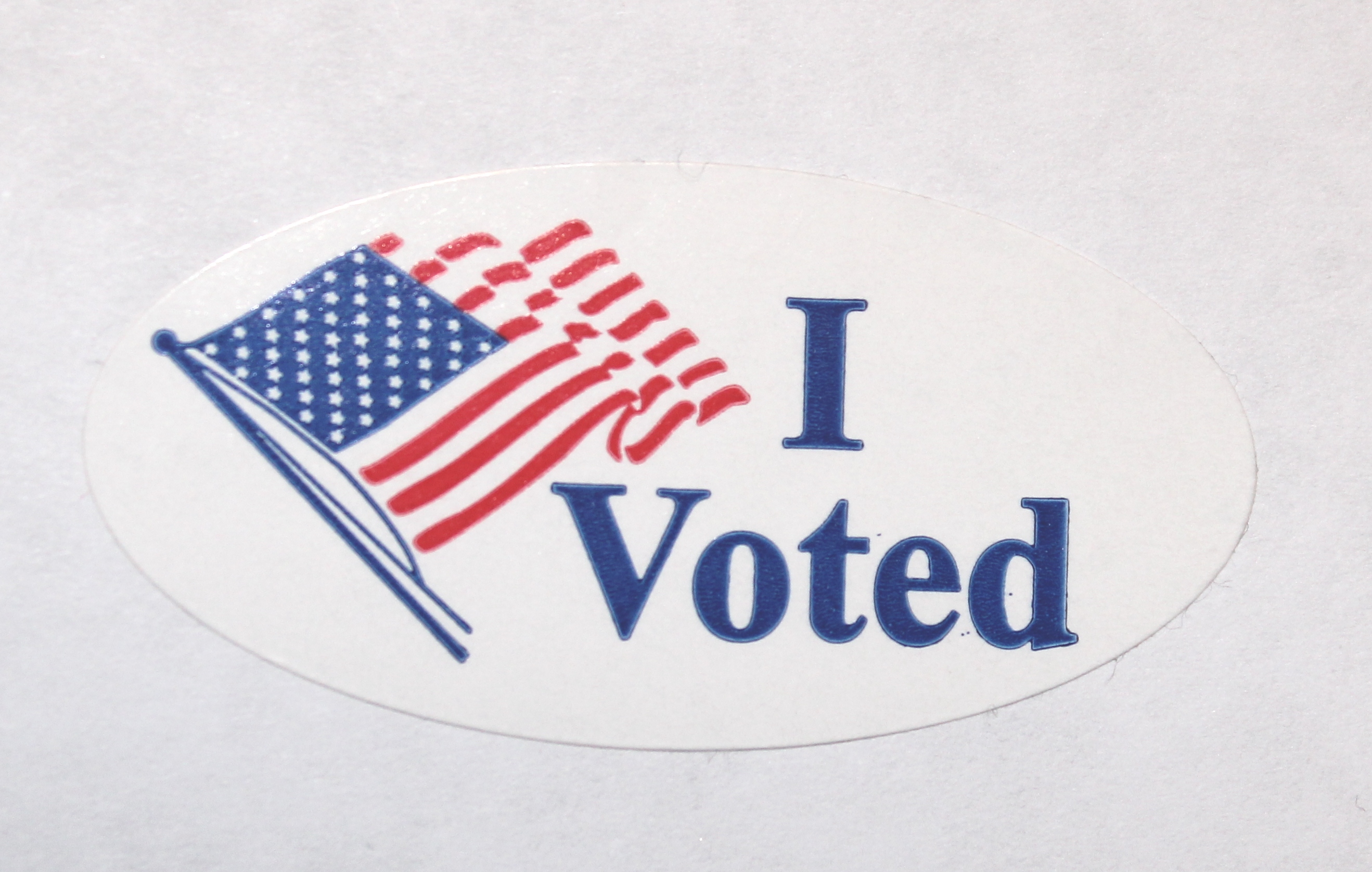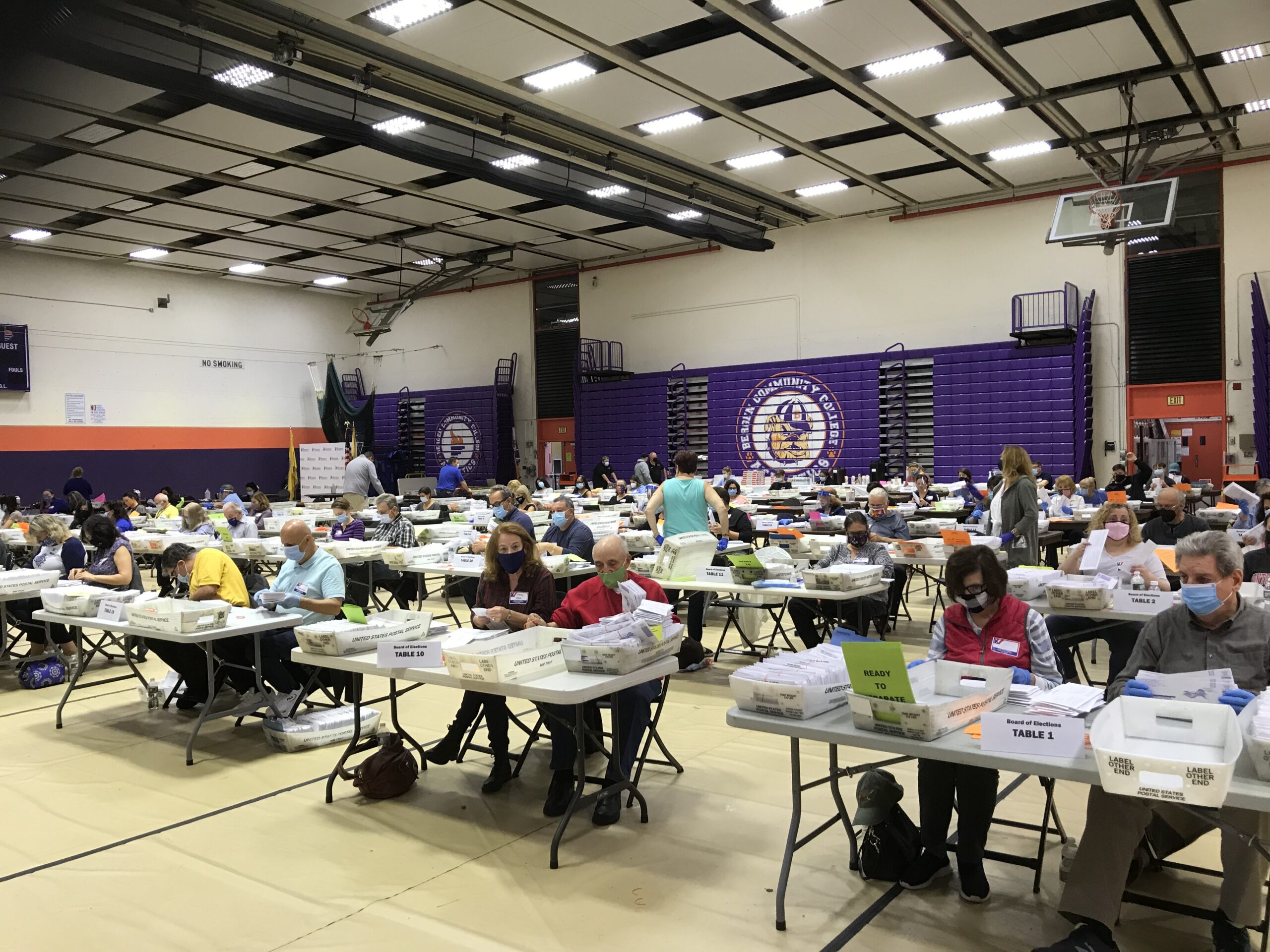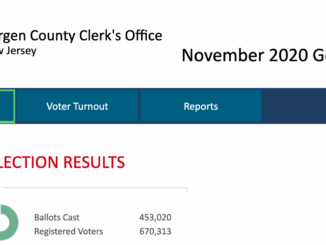
PASCACK VALLEY AREA, N.J.—While the match-up Nov. 3 between President Donald J. Trump and former Vice President Joseph R. Biden takes center stage nationally, New Jersey’s ballot also features three public questions that will be decided including whether recreational marijuana will be legalized.
Besides cannabis, the other two public questions concern whether voters will approve a property tax deduction for veterans who served in peacetime and a more complicated question on whether to delay the legislative redistricting process for two years following a U.S. census count if census data is not provided to New Jersey by Feb. 15 of the following year.
The ballot’s three questions are listed on the reverse side of the ballot’s first page. The ballot’s second page lists regional and local school elections.
Public Question #1 on whether to legalize recreational marijuana, or cannabis, has been debated and argued over for decades but more intensely since Gov. Phil Murphy’s election in late 2017. Murphy campaigned in part to legalize pot within his first 100 days in office.
With two recent statewide polls indicating support for cannabis legalization at about 60 percent or more, legalization is expected to pass. Last fall, after two failed legislative attempts to legalize marijuana, legislators voted to put the question on the ballot. New Jersey would become the 12th state, plus Washington, D.C., to legalize marijuana for recreational use if it passes.
Late in 2019, the Legislature passed a resolution to place the marijuana question on the ballot. Most Democrats (72 of 79) supported the resolution and most Republicans (36 of 41) opposed it, noted Ballotpedia, an online nonprofit organization that bills itself as a digital encyclopedia of American politics and elections.
The constitutional amendment would permit individuals 21 and over to use marijuana, now only permitted in New Jersey for limited medical uses.
Social justice advocates support legalization due to what studies show as disproportionate arrest and incarceration of black and brown Americans for marijuana possession and use. Legalization supporters include the American Civil Liberties Union and NJ CAN 2020, a coalition of doctors, lobbyists, businesses and activists who support legalization. NJCAN is mostly conducting a social media campaign to promote voter approval of legalization.
However, Shawn Hyland of Family Policy Alliance of New Jersey, asserted “Study after study shows legalizing pot will put the public safety of New Jerseyans at risk” and that legalization supporters “are ignoring the historical trends of harmful youth usage and the extensive negative effect legalized marijuana has had on communities of color.”
Recently during a Woodcliff Lake candidate forum, two Democratic council candidates—Josephine Higgins and Richard Schnoll—supported the possibility of hosting a local marijuana dispensary if sufficient tax revenues could be generated. No other Pascack Valley public official has publicly supported marijuana legalization.
Pascack Valley mayors, council members and police chiefs we surveyed earlier this year and late last year said they opposed legalization, and towns passed ordinances to prohibit sales. Under previous legislation, towns had six months to opt out of any cannabis enterprise by passing a local ordinance.
Should legalization pass, the referendum notes a five member Cannabis Regulatory Commission would oversee the new cannabis market. The commission was created in 2019 to oversee the state’s medical cannabis program. The scope of the commission’s new authority would be detailed in laws enacted by the Legislature, the ballot’s interpretive statement on the question reads.
The ballot statement notes retail cannabis sales would be subject to the state’s 6.625 percent sales tax as well as a local tax not yet determined. Previously, a 2 percent local tax was proposed in legislation, though the state League of Municipalities had lobbied for up to 5 percent to help cover local costs, such as police training, equipment, and increased municipal court costs.
Public Question #2 would enable the state’s $250 property tax deduction for wartime veterans to extend to veterans who served during peacetime. The measure would also enable surviving widows of peacetime veterans to receive the deduction.
In addition, the ballot measure expands the 100 percent property tax exemption for disabled veterans with total and permanent service-related disabilities to peacetime veterans with similar disabilities. Also, disabled veterans’ surviving spouses would be eligible to receive the exemption.
According to Ballotpedia, the state Office of Legislative Services estimates New Jersey is home to 53,274 property-owning peacetime veterans and 440 peacetime veterans in continuing care retirement communities. OLS estimated deductions for peacetime veterans would cost the state $13.6 million in 2020.
OLS estimated 4,230 disabled peacetime veterans paid property taxes in 2018 and approval of 100 percent property tax exemptions would cost the state $38 million. The fiscal impact of surviving spouses’ deductions and exemptions was not estimated, OLS said.
Public Question #3 asks voters to approve a change in the legislative redistricting schedule if federal census data is received after Feb. 15 in the year after a census is completed. This would permit the existing state legislative districts, currently in effect since 2011, to remain in use for the 2021 election, while state legislative elections in 2023 would be the first to use new districts redrawn based on 2020 U.S. Census data.
This would apply to future redistricting cycles following the U.S. Census in 2031, 2041 and so on, according to Ballotpedia.
Last summer, most legislative Democrats supported the ballot question and all-but-one Senate Republican opposed it. Republicans The Republican Party state chair, Doug Steinhardt, noted New Jersey citizens deserve legislators that reflect the political and demographic make-up of their state as soon as possible after U.S. Census data is available.
“Democrats pushing this amendment to delay redistricting are trying to kill a fly with a sledgehammer, and are aiming to extend their majority for an additional two years,” charged Steinhardt during debate on the ballot question.
In 2021, state legislative primaries are scheduled June 8 and U.S. Census Bureau data needed for redistricting was required to be delivered before April 1. However, the bureau asked Congress to extend their data delivery deadline to July 31, due to pandemic-related delays.



